Summer means spending time by the pool, going for hikes in nature, telling stories by the campfire, and grilling in the backyard with the family.
And while all of these activities are enjoyable, they also all take place outside. That means needing to find ways to keep the bugs, mosquitoes, and ticks as far away as possible.
But it never dawned on me that I might actually be making quite a few mistakes when it came to applying my bug spray.
Scroll through below for an exclusive list of common mistakes people make when it comes to insect repellent. I had no idea that it mattered whether I applied sunscreen or bug spray first, or that I should be checking my can for a specific type of label to ensure it is safe to use.
While none of these mistakes is all that difficult to correct, I'm so glad I know them now so I can keep myself and my family safe from harmful chemicals and free from pesky insect bites!
Which of these mistakes came as a surprise to you? What other insect-repelling ideas have you tried? Let us know in the comments.
Thumbnail Source: Flickr
Mistake #1: You Put It On Before Sunscreen
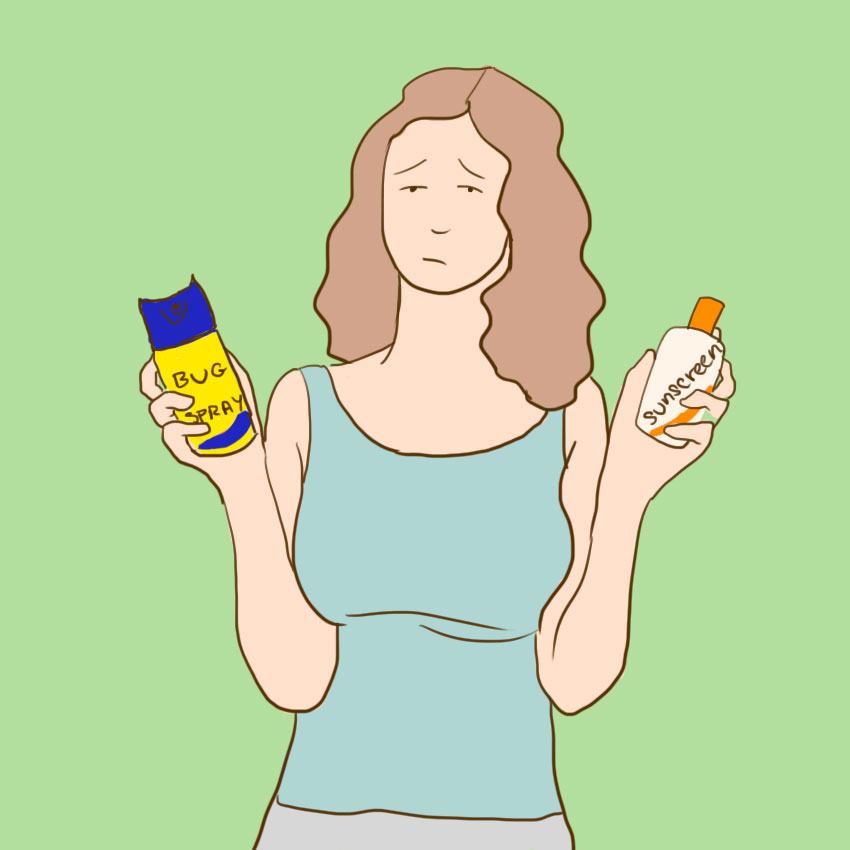
You probably never knew that it does actually matter what order you put on sunscreen and bug spray: sunscreen always goes first!
Eugene Zabolotsky of the New York Entomology Society and Mosquito Control Association tells LittleThings, "The CDC [Centers for Disease Control] advises that you apply your sunscreen before using insect repellent, whether it's spray or cream."
Mistake #2: You Grab Any Old Can

You might think that all bug sprays are created equal, but this is definitely not the case. Don't just grab any old can or you may still get bit!
Zablotsky also tells LittleThings: "Read the product label — not all sprays are for all insects.
"The CDC recommends that to prevent mosquito bites, you should use repellents that contain picaridin [or] oil of lemon eucalyptus."
There are other, specific sprays if you want to repel mosquitoes and ticks!
Mistake #3: You Spray Inside
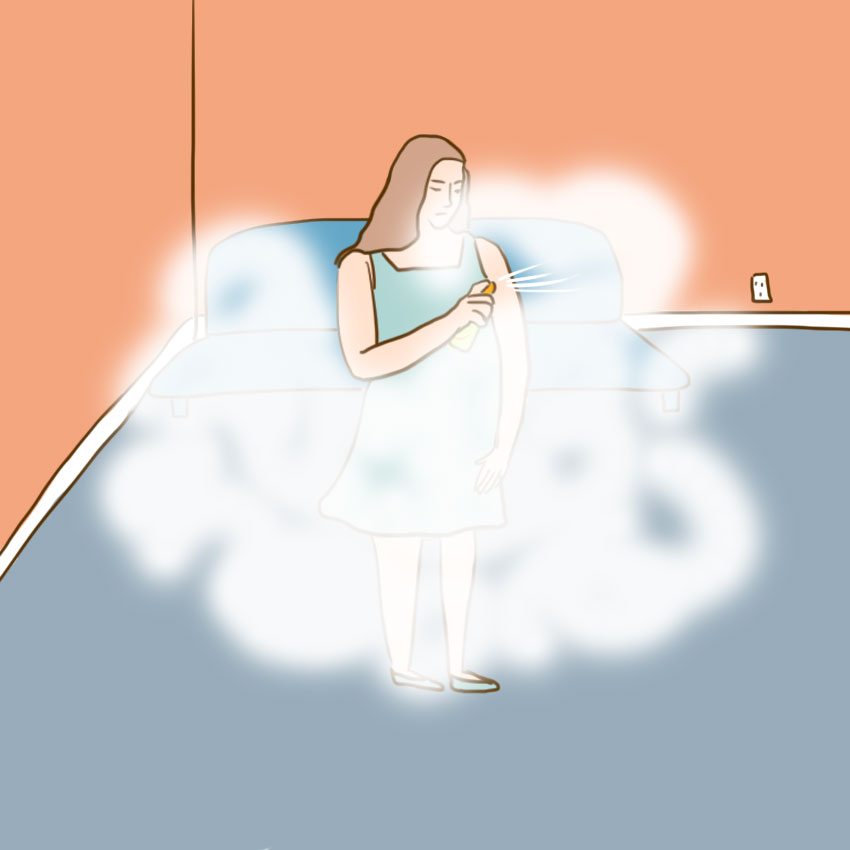
Even though you are spraying it on your skin, you want to avoid inhaling bug spray as much as possible.
Women's Health Magazine writes: "You're at a greater risk of breathing in chemicals inside your home, says board-certified dermatologist Dr. Whitney Bowe.
"Being outdoors allows the fresh air to act as a natural ventilator, which reduces your inhalation risk."
Mistake #4: You Put On Too Much
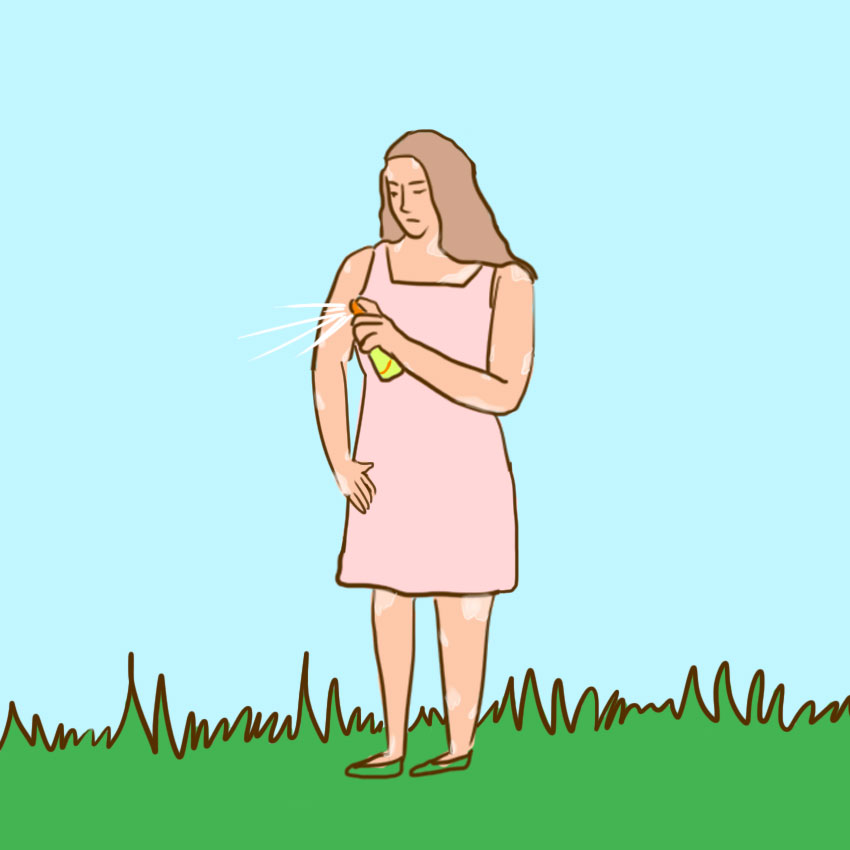
While you want to cover the whole body, you definitely want to avoid putting on too much bug spray.
Dr. Anjali Mahto tells Thomson Blog, "You want to just cover all areas of exposed skin. Applying it more heavily does not provide better or longer-lasting protection."
Mistake #5: You Only Apply For Camping Or Barbecues
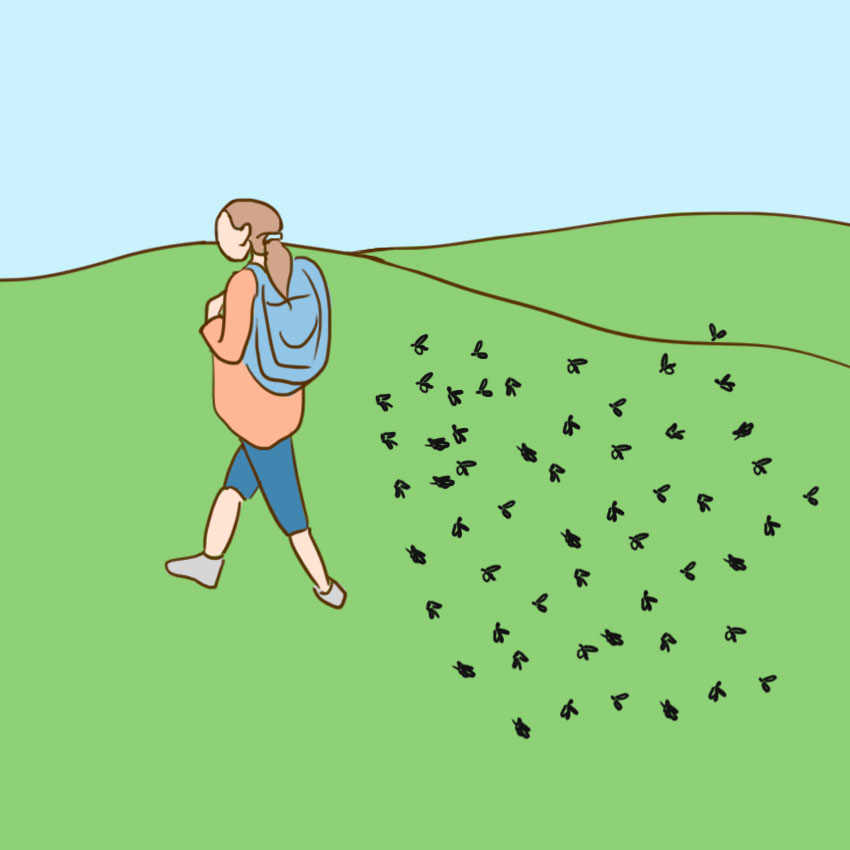
Just because you aren't out camping or sitting near still water doesn't mean the bugs aren't poised to attack.
Zablotsky tells LittleThings: "Use insect repellent anytime mosquitoes and other bugs are likely to be present; not just during camping trips and barbecues.
"Use bug repellent anytime you're walking in tall grass, on leaves, and during dusk and dawn."
Mistake #6: You Forget To Shower After
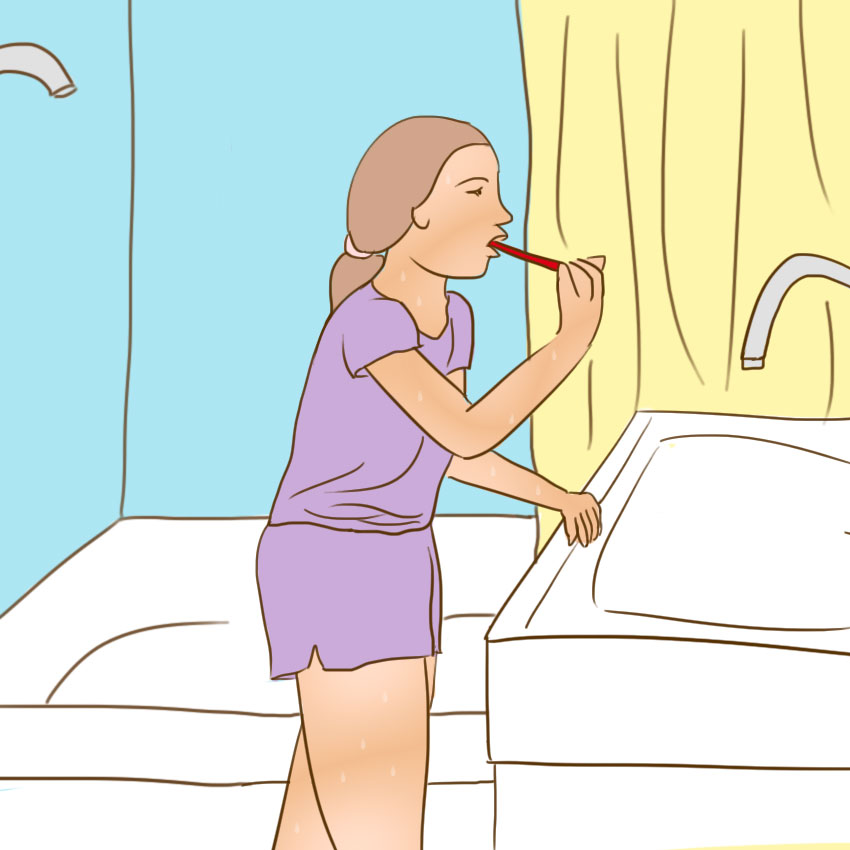
Once your outdoor fun is over, you have to make sure you take a shower to rid your body of the bug spray.
According to Women's Health Magazine: "Toss your clothes into the laundry and head straight to the bathroom.
"You could unnecessarily expose yourself to chemicals the longer you stay in your outfit without bathing," says Bowe.
Mistake #7: You Don't Look For The Yellow Circle
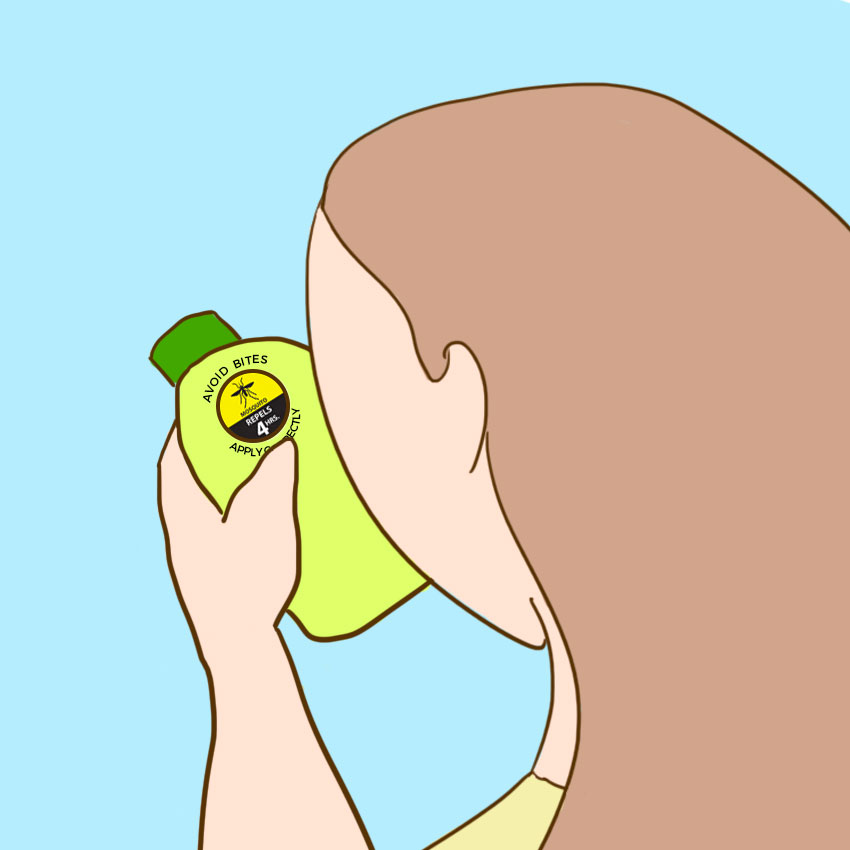
How do you know if your insect repellent is safe to use? There are actually two ways to be sure.
TIME writes: "If you see an EPA registration number on a product label, you know that it's been tested for safety and effectiveness.
"Better yet… some products now have a black-and-yellow repellency awareness graphic, which clearly states how long they have been proven to repel mosquitoes and ticks; that symbol means the company has provided the EPA with scientific data to support their claims."
Mistake #8: You're Afraid Of DEET
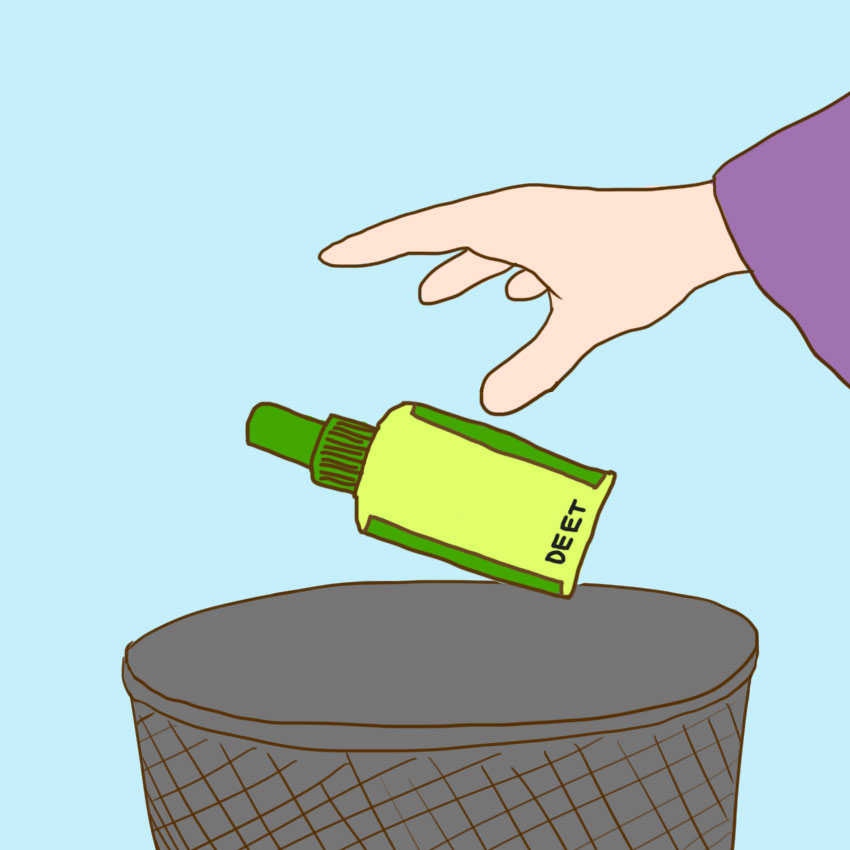
Because it is a form of pesticide, many people believe that they should avoid sprays containing DEET.
However, Dr. Walter S. Leal tells TIME, "People have the notion that DEET is synthetic and therefore it's not a good thing. But it's so effective and so good that it's lasted more than six decades."
Zabolotsky also tells LittleThings, "If you're trying to repel both mosquitoes [and] ticks, use products that contain at least 20 percent DEET."
Knowing to avoid these mistakes can help to keep you safe and bug-bite-free this summer!
Which of these bug spray mistakes have you been making? Do you know any great hacks for keeping the bugs away? Let us know in the comments.
Please SHARE this important insect repellent information with friends and family!




